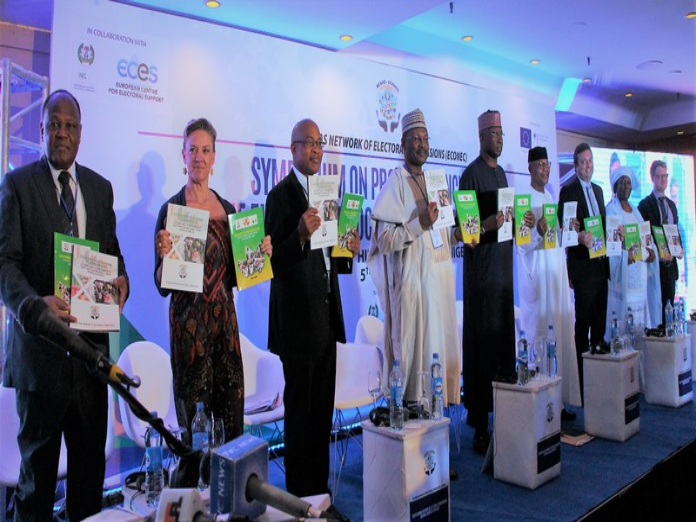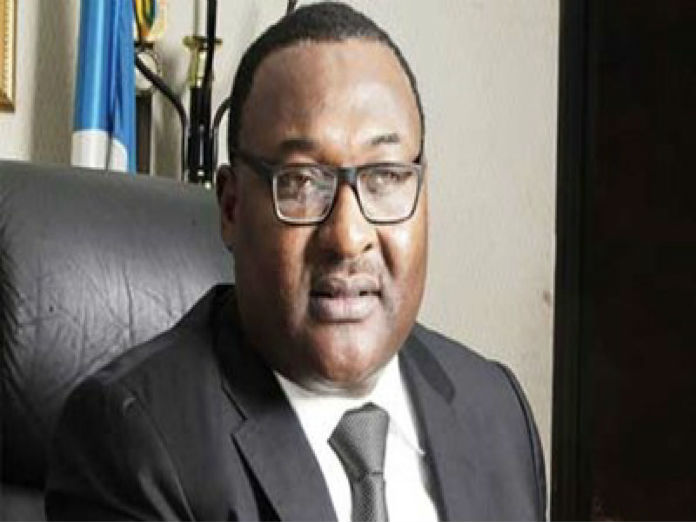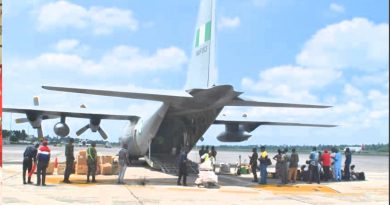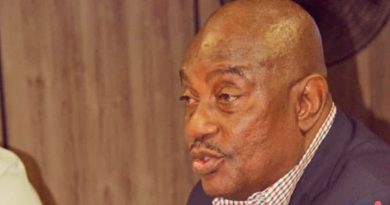ECONEC Gets New Steering Committee Chairman, Issues 8-point Declarations
Oru Leonard, Abuja
The ECOWAS Network of Electoral Commissions (ECONEC), has elected Dr Maria do Rosario Lopes Pereira Goncalves as the new Steering Committee President.
The new President, who was former treasurer, took over ECONEC leadership from the chairman of Independent National Electoral Commission of Nigeria (INEC), Prof Mahmood Yakubu.
Maria is the Chair of Cabo Verde Electoral Commission and was elected by ECONEC representatives.
The participants at the symposium, organised by the the ECONEC, INEC and the EU in Abuja acknowledged that the participation of all segments of the society in the political life of their country is a human right and an essential ingredient for democratic development.
The eight-point declaration, signed by Francis Gabriel Oke, Permanent Secretary of ECONEC, said that ECONEC and ECOWAS Commission should support Member States in their efforts at ensuring sustainable democracy through greater participation and promoting Inclusiveness In Electoral Process In ECOWAS Region.
It also said that ECONEC and ECOWAS Commission should support Member States in their efforts at ensuring sustainable democracy through full, equal and unhindered participation in the electoral process.
The declaration said that ECOWAS Member States should consider passing and/or enforcing legislation on affirmative action with a minimum threshold of proportional representation with measurable and verifiable goals and objectives based on quantitative and qualitative field data.
It requires Member States to call on all political parties to recognize that women, youth, People With Disabilities, (PWDs), and other marginalised groups’ participation in decision-making at the leadership level is the only way of ensuring their electoral value and appeal to the electorate in the long-term.
It also said that ECOWAS member States should adopt measures to prevent violence, intimidation, exploitation and abuse against women, youth, PWDs, and other marginalised groups and explore means of empowering them to participate fully in political processes.
ECOWAS member States should promote citizens led election observation and monitoring initiatives to enhance the transparency and credibility of the electoral process.
“EMBs should adopt necessary provisions and take required actions to facilitate full participation of all marginalised groups across the electoral cycle (registration, candidate nomination, civic education, access to polling units, voting, etc.).
“ECOWAS Commission should accelerate the establishment and activation of the regional logistics depot in Lungi, Sierra Leone and encourage the pooling of election resources and materials for common use across the ECOWAS region, based on the principle of mutual assistance and burden sharing,” it said.
The Symposium discussed the legal framework and desirable practical steps for enhancing the participation of women, youth, persons with disabilities (PWDs), internally displaced persons (IDPs) and other marginalised groups in the electoral process.
The participants at the symposium included Chairpersons of Election Management Bodies (EMBs) in the ECOWAS region, the leadership of the Nigerian National Assembly and members of Parliament across the ECOWAS region, representatives of Civil Society Organizations (CSOs) and of the community of PWDs and members of the Diplomatic Corps. Other participants include Election and Gender Experts and Development Partners such as Association of World Electoral Bodies (A-WEB), International Foundation for Electoral Systems (IFES), Electoral Institute for Sustainable Democracy in Africa (EISA), Open Society Initiative for West Africa (OSIWA) and the German Agency for International Cooperation (GIZ).




